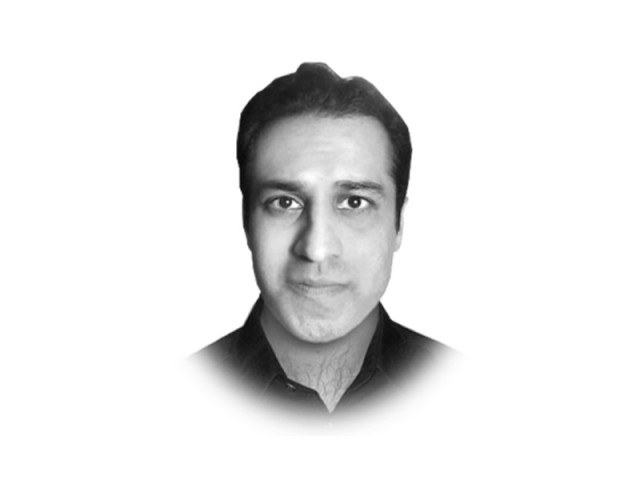Politics is no child’s play
What is ultimately important is not the evolution — or lack thereof — of single person, but broader impact on country.

The writer is an adjunct scholar at the Middle East Institute in Washington, DC and president of Vizier Consulting, LLC. He tweets @arifcrafiq
Six years later, with many false starts to his political career in between, Bilawal appears to remain a kid. His speech last week in Karachi and his behaviour on Twitter — both cringeworthy — evince the worst qualities of his millennial generation: self-absorption, prolonged adolescent behaviour and overconfidence. While another young Pakistani leader, Malala Yousufzai, displays a maturity far beyond her years, Bilawal seems to have regressed since his relatively impressive address at Garhi Khuda Bakhsh last December.
What is ultimately important is not the evolution — or lack thereof — of a single person, but the broader impact on the country. After all, Pakistan — or for that matter, any country — is only as good as the sum of its parts. And the Pakistan Peoples Party (PPP), which Bilawal is being groomed to lead, is a big part of that sum.
Nearly every major power broker inside Pakistan — save for the Tehreek-e-Taliban Pakistan (TTP) and other terrorist groups — has something valuable to offer the country. For its part, the PPP stands out as a party with national reach that is sensitive to the rights and concerns of Pakistan’s minorities, women, and smaller provinces. And for Pakistan to move forward, it will need the PPP to play a meaningful role in the national conversation — with a just mean culminating from the dialectic.
With this perspective, I found Bilawal’s Karachi address utterly disappointing both in its style (an odd, child like giddiness) and the actual content, which consisted mainly of potshots at politicians old enough to be his father.
Bilawal should not be playing the role of bad cop. He lacks the credibility and experience to do so. And dishing out negativity will only invite reciprocal behaviour, allowing the PPP’s opponents to take easy swipes at a party that is currently boxed in interior Sindh and needs a positive agenda to win back public approval. Excessive intra-civilian polemics also aid both, the TTP and the Junood ul-Hifsa, which have sought to divide the secular political parties and the center-right and religious ones, and now also seek to foment divisions between the latter political parties and the army. Bilawal has had the moral clarity to call out the TTP for what they are: depraved killers. He should be more keen not to aid them by engaging in behaviour that delegitimises the democratic process for democracy sceptics in Pakistan.
While Bilawal, aged 25, has a lifetime ahead of him, it might be difficult to say the same for the PPP. This May, the PPP failed to place in the top two in the popular vote count for the first time in the party’s history. The party is stuck in an old, tired discourse and has failed to offer something new. Adding to the party’s constraints is the fact that Bilawal is busy assimilating himself into a country from which he’s been far removed. Part of that assimilation process has been to utilise the traditional slogans and symbols of the PPP. While those elements will remain key to the PPP’s viability, it will have to evolve a new face to adapt to a changing, increasingly urban electorate.
Pakistanising Bilawal might be akin to squaring a circle. Why not leverage his time spent abroad — specifically, his Oxford education — and position him, not just as a hereditary party leader, but also a technocrat? Such an approach might involve some additional years of education that could be fit into the years before the next election cycle begins.
Imagine Bilawal leading the PPP’s 2018 election campaign, armed with the Bhutto name and a PhD in economics (having done his field work in Pakistan). Imagine Bilawal, the populist technocrat specialising in microfinance — an issue key to interior Sindh and southern Punjab and also one that rubs urban Pakistanis the right way. Imagine Bilawal taking roti, kapra, makaan to the next level. The transformation of Bilawal and the PPP need not happen this exact way. But for the party to stick around, it needs to happen somehow.
Published in The Express Tribune, October 23rd, 2013.
Like Opinion & Editorial on Facebook, follow @ETOpEd on Twitter to receive all updates on all our daily pieces.













COMMENTS
Comments are moderated and generally will be posted if they are on-topic and not abusive.
For more information, please see our Comments FAQ